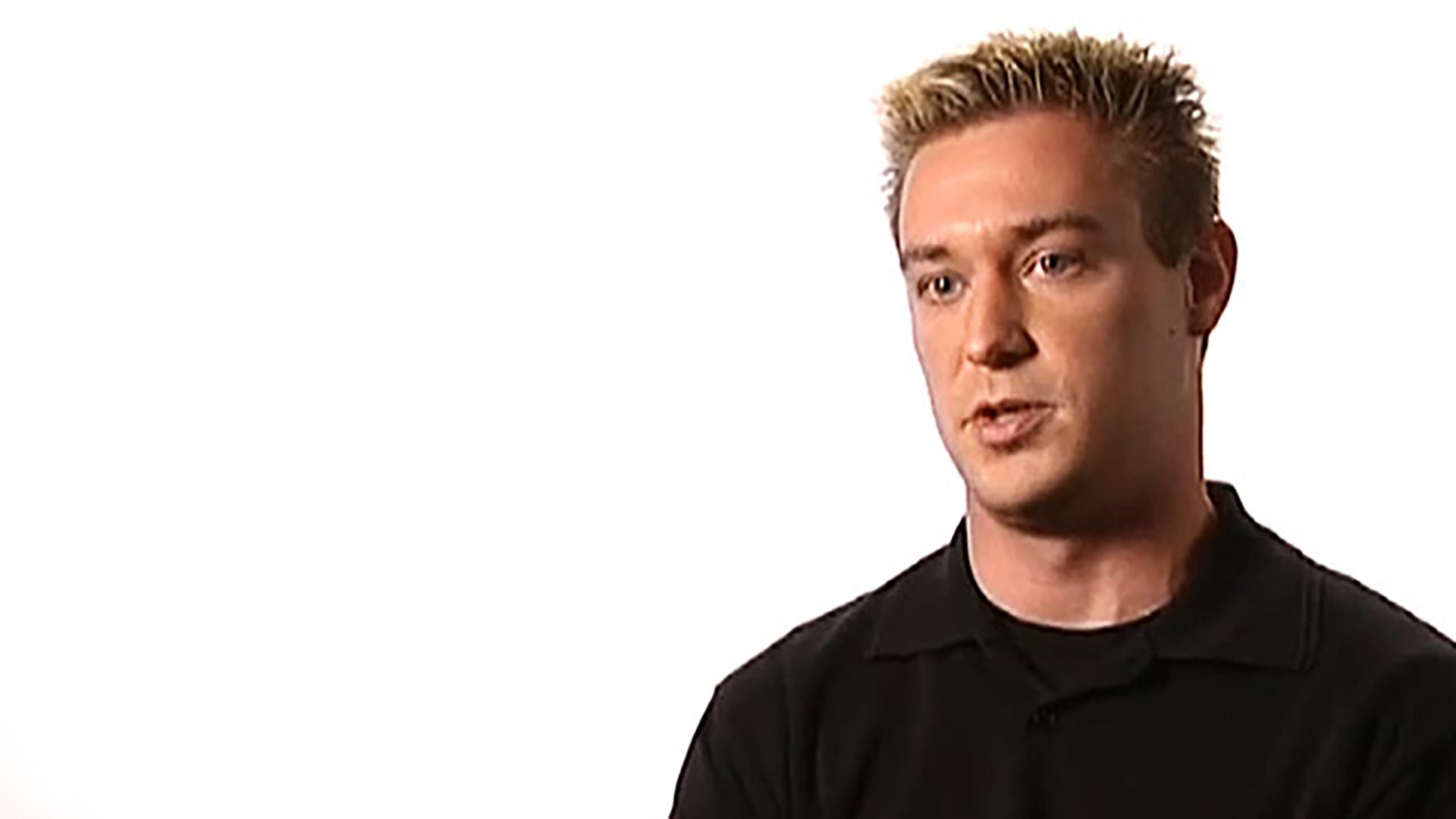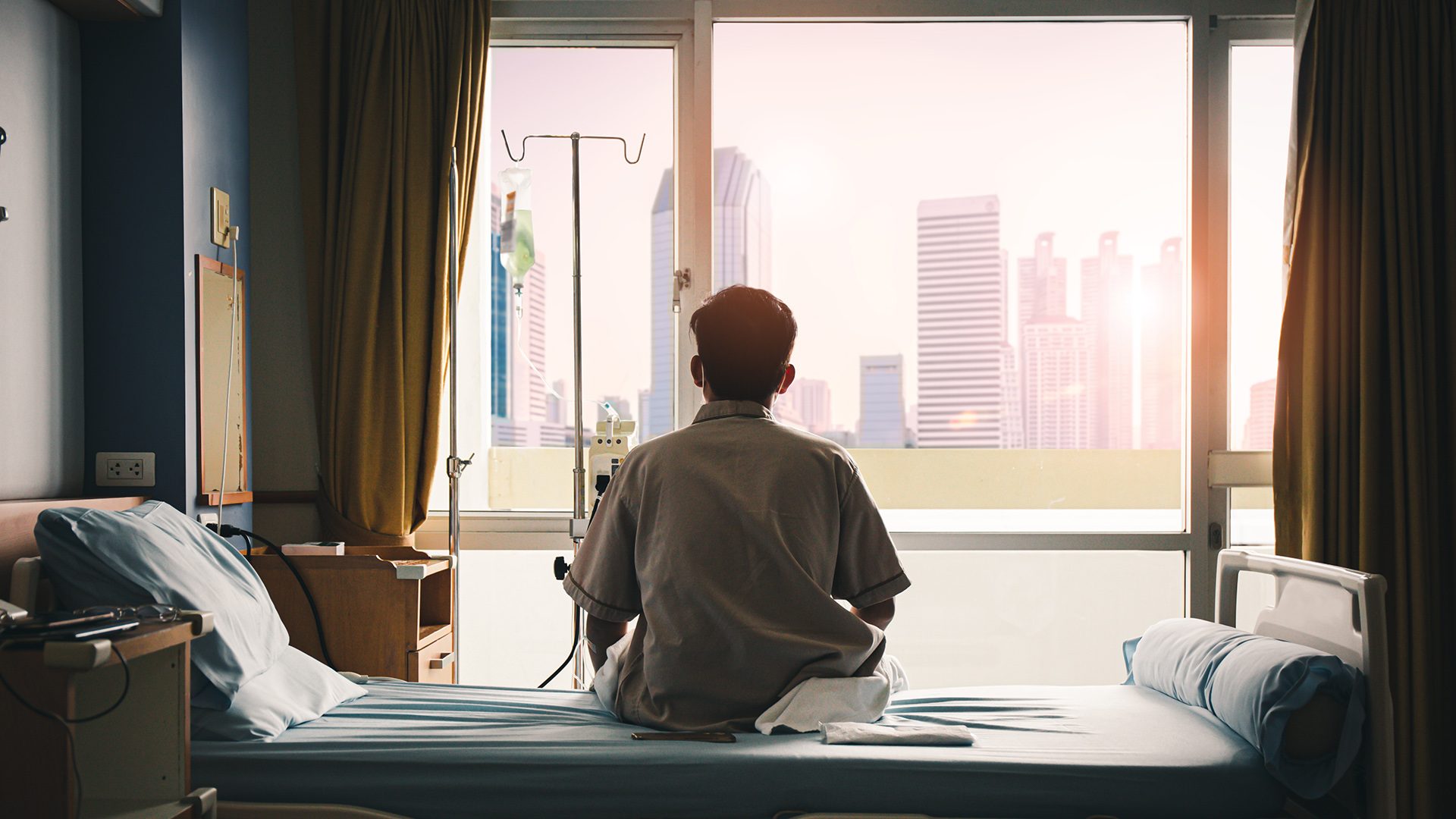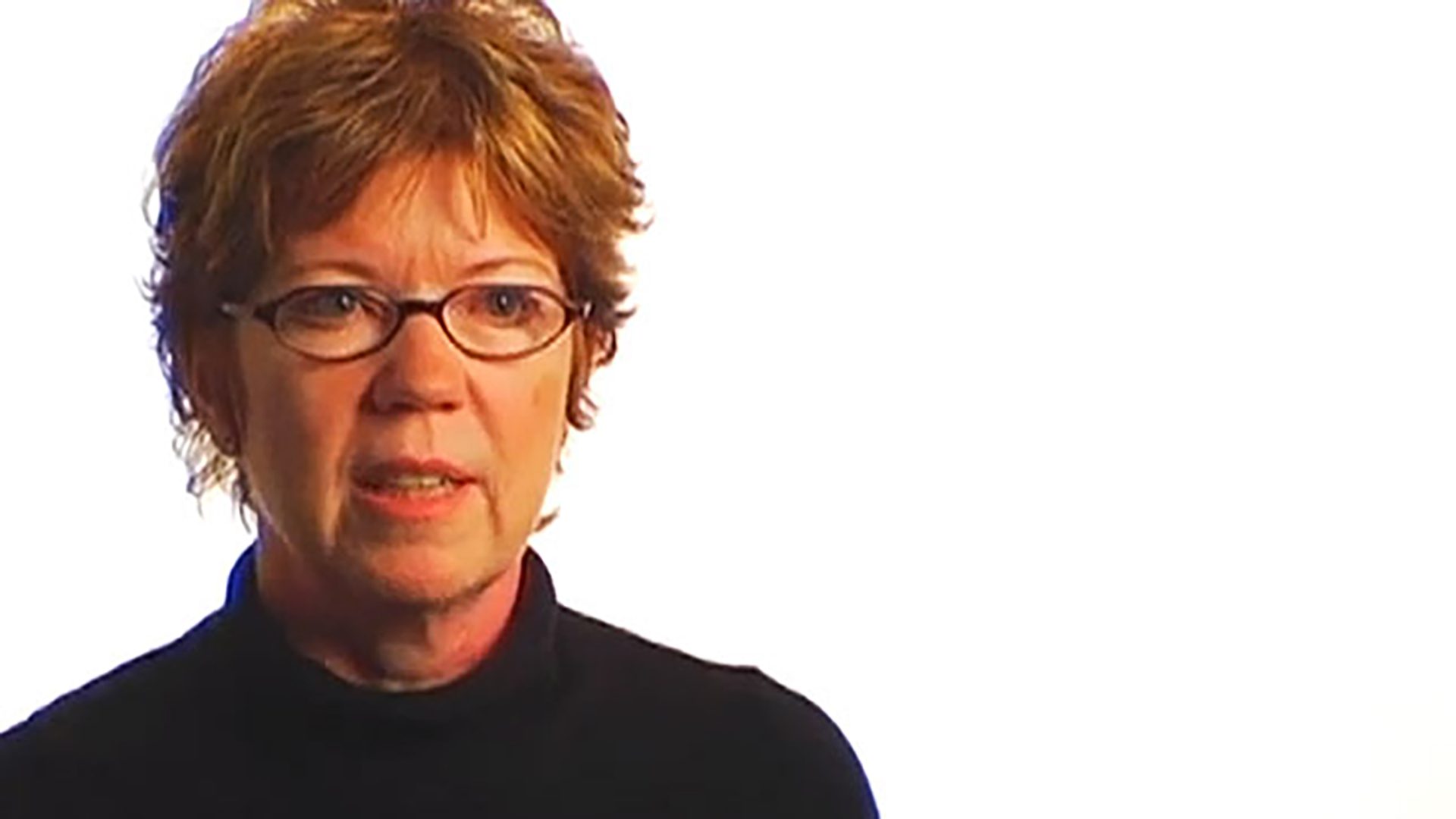Survivor Interview – Jeff D.
Jeff is a testicular cancer survivor. He talks about living with uncertainty, telling others he is a survivor, and health insurance concerns.

I became a cancer survivor on August 1, 2000, when I was diagnosed with testicular cancer.
My only treatment was surgery. Since then, I’ve been undergoing observation. Other than a whole lot of doctor’s appointments, blood work, x-rays, and CAT scans, it hasn’t really interfered with my life at all in any way. You definitely worry every time. If the appointment weren’t to go well, it’d really change what’s going on in my life and how things would go. There is that stress associated with it every time. My choice early on was I could either have surgery to remove all of my lymph nodes and not have to worry about things, or I could have undergone observation and hoped that it hadn’t spread. I definitely thought that not having the surgery was a better choice. I didn’t want to have a surgery that I didn’t need to have. From what they told me, that surgery had a pretty long recovery time, like six to eight weeks. That’s right when I was supposed to start graduate school, so that would have put me behind a semester. Because of the way things were going for me at that point in my life, it made a lot more sense to do observation.
I discussed fertility with my doctors. They offered to do any tests that I wanted to examine that. I didn’t have them done. If you did find out you were infertile, there’s no way you would know that it was caused by the cancer. It could have been something else that happened before that, so even if you were to find out that was the case, you wouldn’t even know specifically that that was the cause. One of the reasons I decided not to have the surgery is that to have a kid, you’d have to have surgery again. That wasn’t something I especially wanted to do. I guess I had the option, but it was all pretty fast. From the time I was diagnosed to when I had surgery was only maybe a day or two, so it wasn’t really a lot of time to think about it. The surgery itself didn’t pose a whole lot of risk for that. It was more the possible treatments I would have had after the surgery where I would have really needed to consider that.
Initially after my diagnosis, I was definitely very scared, because I was supposed to be starting graduate school, supposed to be moving to a new city. I got all these things that I wanted to be doing, and now all of a sudden, there’s this huge ’X’ factor in my life. I didn’t know how it was gonna change things. I don’t know if I’m gonna be able to go to graduate school. I don’t know if I move to this new city and it turns out I have to do chemo, will I have to move back home? Will I have people who can help me out? Will I be able to live independently or not? It really calls into question all the plans for the rest of your life. The best way that I found to deal with it is to say, “All I know is this is my situation right now. So I’m gonna do everything I can to live my life the way that I had planned on doing so and plow through it and assume you’re going to be okay and do and act accordingly.” Do the same things you would have done.
Emotionally, the most difficult thing early on is telling your family and friends what the current situation is. It’s difficult only because I know what my situation is. This is how I’m going to deal with it. But to tell other people was in a lot of ways a lot worse than hearing it yourself. It’s not near as bad now, because now I can say it was years ago and I’m fine; whereas, at that time, you can’t say that. You can say, “I found out a week ago. I don’t really know what’s going to happen.” I’d bring it up if I had to mention that I had a doctor’s appointment today or a CAT scan. It’s hard to bring up, because you never really know how people are going to react to it. Usually, they jump back a little bit at first. But then, it’s easy. It’s not as bad, because I can tell them that it’s been a while, everything’s fine now. I’m still somewhat apprehensive, because you’re never really sure if they’re gonna treat you different afterwards. It’s not been my experience that they do actually.
If I’m beginning to date someone or starting a new relationship, I’m still trying to figure out exactly what the best way is to bring up my history with cancer. Typically, I’ve tried to bring it up before it becomes an issue, so that they know ahead of time. Usually, I’ve never gotten a bad reaction. At the same time, it’s a matter of how you bring it up and when you bring it up. It is a mood killer. You really don’t know how they’ll react. Should you let them find out on their own or should you tell them ahead of time? I’ve never gotten a bad reaction to anybody I’ve told ahead of time. I’ve tried the other method of not mentioning it. As it turns out, most people don’t notice. I was surprised by that.
After I was diagnosed, I lived at home for the summer. It was in between college and graduate school. For a little while there, my mom was definitely overprotective. Luckily, I was moving to Philadelphia soon afterwards. Once I moved, I was on my own again. I have two brothers and a sister. They’ve been very supportive. One of the first things I did after I was diagnosed was talk to my brothers. I told them to give themselves a checkup. I’m not really sure how much of it is genetic, but it can’t hurt to check. They were worried about me. I think anytime you hear that a family member has cancer, you’re obviously gonna be concerned. Right after I was diagnosed, I did a lot of research on the web, so I could tell them about it. The odds were pretty good that I would be okay in the end. It helps when you go into it with a lot of knowledge about what you’re talking about.
It’s only been about half a year that I’ve been in the Life After Cancer Program. All my experiences with it so far have been really good, but I’m still pretty new to it. The doctor, who I had been seeing through all my visits, had referred me to it. He said, “You’re at the three-year mark. Everything’s been fine, so it’s time to head over to the Life After Program.” I was pretty excited about it. Some of my appointments are still the same, but it still feels good to go to the Cancer Survivor Center as opposed to the Oncology Unit. It’s been fairly recent that I’ve been considered a cancer survivor. At some point before that, I may have been fine for a year or so, you’re hesitant to refer to yourself as a cancer survivor. It almost seems like bad luck. You don’t want to say that until you are really confident that it’s true. For the first couple of years, “Yes, I’m doing fine.” But you don’t want to jinx yourself.
I think the biggest way that having had cancer might affect me is that it really might determine a big factor in where I would choose to live. Now, I would be very hesitant to live somewhere that wasn’t near a really good hospital. I’ll probably stick more towards big cities that have really good healthcare. Health insurance was a real issue when I was diagnosed. I was about two months out of a job that I’d been working, and I hadn’t yet started graduate school, so that health insurance hadn’t kicked in yet. Luckily, after you leave a job, you have 90 days to renew your health insurance. So I was 60 days out, and I could pay for the last two months. It covered the overlap between when I finished working and when I started graduate school. But otherwise, that would have been a real problem. I am worried about after graduate school, but I’m assuming I’ll get a job after graduate school, and that that’ll take care of that, hopefully. It is still an issue, because you never know how they’ll treat things.
Survivorship means that I can live my life the way that I had planned on doing so. I’m no longer worried about what’s gonna happen in the future, not near as much as I had been previously. I’m doing the same thing that I wanted to do. When I make plans for the future, I don’t think about cancer as something that will occur again.
My name is Jeff Duda. I’m 27 years old, and I’m a three-and-a-half-year testicular cancer survivor.

